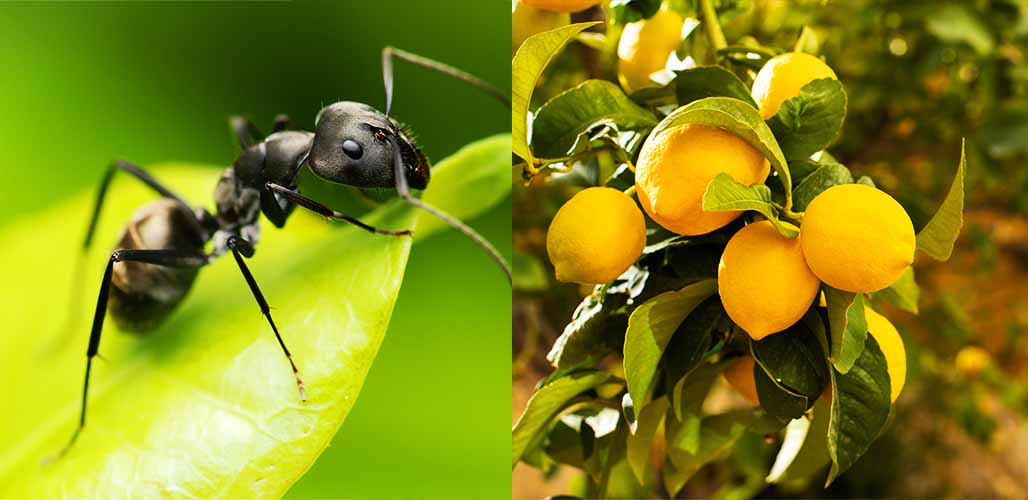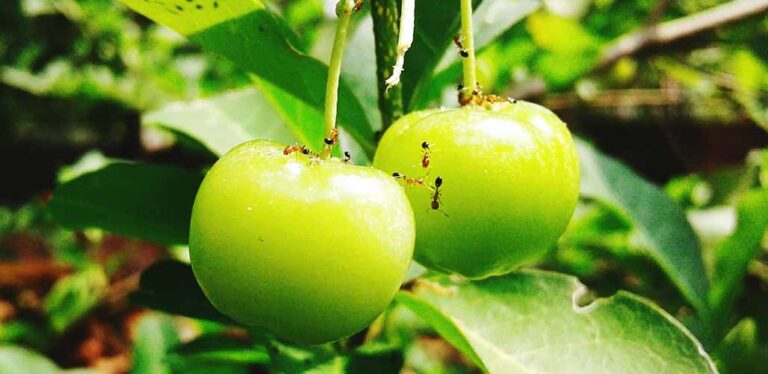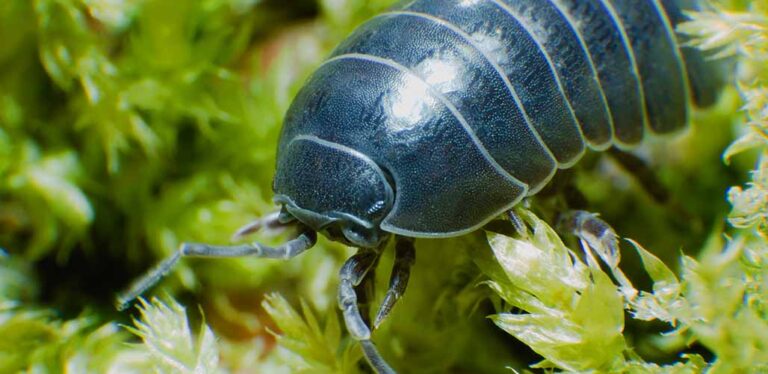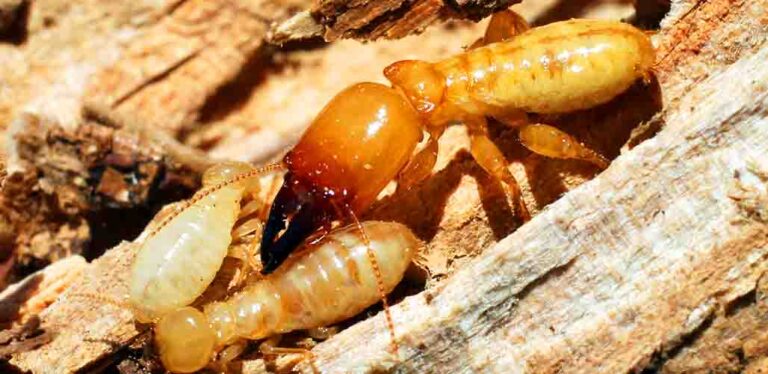Will Ants Harm My Lemon Tree?
Will ants harm my lemon tree? Lemon trees are one of my favorite sights in any garden. But, like any fruit-bearing plant, pests can be a major concern. Ants have a mutualistic relationship with aphids, the tiny sap-sucking insects. Aphids and some of their kin excrete honeydew, a sugar-rich liquid that ants fancy. In the bargain, ants safeguard aphids from preying ladybirds, hoverflies, and other marauders. But is allowing aphids to live and thrive the only wrongdoing of ants? Today, I’ll take a closer look at all potential ways ants can harm your lemon trees, so you know when to step in.
Contents
- Are ants attracted to lemon trees?
- Will ants harm my lemon tree?
- The risk of red ants
- Ants can damage the soil
- Ants and aphids
- Getting rid of ants from your lemon tree
- Preventing ants on a lemon tree
Are Ants Attracted to Lemon Trees?
Contrary to general assumptions, the citrusy scent of a lemon tree doesn’t repel ants. And if there’s a colony of aphids and similar insects on the tree already, ants get attracted more. Do note that aphids are usually an issue with lemon trees young or continually flushing (growing new leaves). Ants also fancy the nectar found in citrus blossoms. So, it shouldn’t come as a surprise to see these little insects on your tree. But, should you be concerned about this?
Will Ants Harm My Lemon Tree?
Ants (generally) don’t harm a lemon tree. As mentioned above, the fresh citrusy smell of lemon could host an uninvited, unruly ant brigade. But, the good news is that ants usually do not harm a lemon tree or most other trees. However, their presence around the tree could be an eyesore, warranting action. And, ants can encourage other pests, like aphids, who will cause much more damage to your tree.
The main problems ants will cause to lemon trees involves their disruption of the soil at the tree’s roots. But, red ants are more problematic than other types when it comes to damaging trees. So, let’s take a look at these two problems next.
Red Ants Could Inflict Damage
The red fire ant variety is not as kind to trees and plants as its brethren. Also called RIFA or the fire ant, red fire ants strike lemon trees—invariably chewing the bark, penetrating the sap, and ruining flowers.
If the situation is left unattended for long, fire ants could devour the bark entirely, ultimately killing the tree. These red ants can hurt any tree, not just lemon trees. Luckily, there are warning signs, and it’s usually never too late to save the tree.
Ants Generally Loosen (Damage) the Soil
The major signs of damage by ants to a plant or tree are on the soil. They can dig into and loosen up the sod to create cribs for themselves. If their nests are near a plant’s roots, those may damage the specific plant’s growth or cause it to wilt. This penetration into the soil could happen on the ground, in containers, and pots. At times, ants could infiltrate manure heaps but won’t sabotage the composition.
In the case of lemon trees, their roots are sturdier than many other plants. But, ants can still cause them problems. By disrupting the soil, ants can expose lemon tree roots. So, though ants themselves might not harm the roots, they can make them much more vulnerable to damage.
Do Not Forget the Aphids
Aphids attract ants – these pests are usually the biggest reason ants get pulled toward lemon trees. To confirm aphid or other insect presence, inspect the undersides of your lemon tree leaves for tiny green, white, or black insect presence. Those are aphids. On the other hand, small, immobile brown bumps are “scale insects”.
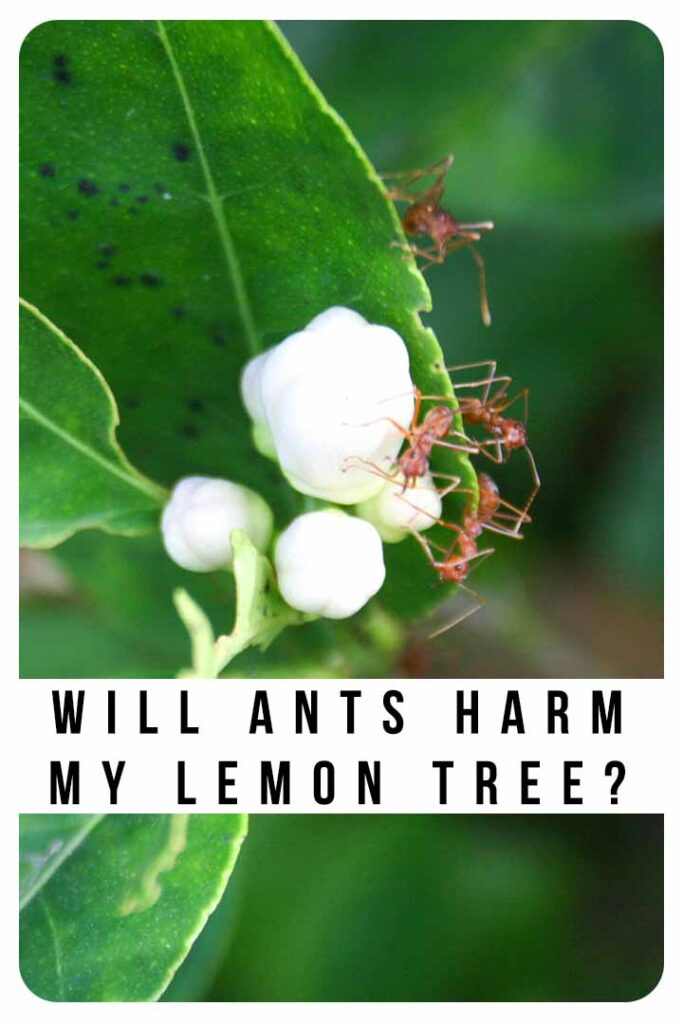
Ants and aphids have a mutually beneficial relationship. As I said at the start of this guide, aphids excrete honeydew, which ants will eat. In return, ants protect aphids from their natural predators. But, aphids can cause some real damage to fruit trees, including your lemon tree. Getting rid of ants will allow natural aphid predators to eliminate the pests. But, there are also steps you can take to eliminate aphids and prevent further damage to your lemon tree.
If only a few leaves are affected, snip them off and throw them in the trash can. If the aphid infestation is more widespread, hose the entire tree to knock the pests off. Use horticultural oil to eliminate scale bugs and also aphids. Employ the hose and oil once every three weeks till the pests are terminated. You may continue to hose the tree as a preventative measure. Just reduce the frequency. Do note that the water also throws off red fire ants, dirt, and grime, leaving behind a rather spruced-up tree.
Eliminating the Ant Colony Around Your Lemon Tree
Eliminating ants with pesticides and similar tools should be the last resort. But if the ant colony in your garden is massive, killing them is invariably the only option. There are four main methods I’ve found to be effective.
1. Vinegar
Grab some vinegar (5% concentration)—a higher concentration is too acidic and could damage the plant. Pour three parts of vinegar, one portion of water, and a teaspoon of dish soap into a spray bottle. Mix well and spray it on the ants. Spritz the blend on the soil and leaves weekly.
2. Peppermint Oil
Peppermint oil has a strong “anti-ant” odor. Mix five drops of the oil with 5 oz. (150 ml) of water. Stir the two well and transfer the blend to a sprayer. Spray it on the plant’s leaves and soil. Peppermint oil could be too strong and hurt the plant. Spot-test the solution–for instance, on leaves–before going all out. If you see issues, dilute the oil more.
3. Neem Oil
Mix a tablespoon of neem oil with a liquid quart (approx. 946 ml.) of water and dish soap (one teaspoon). Pour the blend into a spray bottle and give it a proper shake so that the neem oil and water mix well. Spray the solution on all sides of the trunk to prevent the ants from climbing up.
4. Insecticidal Soap
You may use insecticidal soap (a tablespoon) with water (1 quart) instead of neem oil. Pour the two into a spray bottle, shake the bottle, and spritz the mix on the ants. Although the neem oil and insecticidal soap seem more preventive, you can use them as a weapon on an already formed ant settlement.
Preventing an Ant Society Near or on Lemon Trees
Perhaps the best method to keep ants off your lemon trees is to prevent them from showing up. Here are some prophylactic measures you can take in that regard.
- Pruning: Ensure the tree’s branches are not touching the ground, rendering it difficult for the ants to climb and crowd up on the tree. Also, cut off branches touching nearby fences or shrubs.
- Tree wrap: Enclose the tree’s trunk with a tree wrap and paint it with a sticky material that traps ants. Wrap the trunk snugly to prevent ants from moving up from beneath the cover. Due to the trunk’s uneven surface, some ants will manage to sneak through regardless. Check on the tree weekly to see how the wrap is working out.
Some recommend regularly watering the tree/plant to deter ants and other pests. The science behind the same is not very evident. You may, however, give the method a try.
Keep the Environment Ant-Unfriendly
Ants are hard to avoid, especially in the outdoors. Those tiny six-legged animals are among the most abundantly found animals on earth. They are constantly on the move, foraging for food, and if your backyard falls in their path, they will trespass. If you have a lot of greenery in your backyard and you’re worried the ants passing by could hurt the foliage, employ the measures above.
Have you successfully used any of these methods to solve your ant problems?

